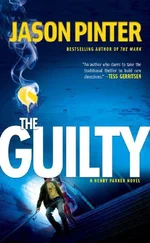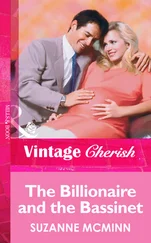I'd do better to keep my mouth shut.
We'd both do better to try to pretend that what happened didn't happen. Just as my parents said nothing about the package that was hidden here during the search. Just as they said nothing about lots of things, those silences that were like bites.
My parents set off at three, not before extracting a whole string of promises from me: Remember, be careful, don't forget, make sure, on no account, take special care, heaven forbid. As they left they said:
"The icebox is full of food and don't forget to show her where everything is and be nice and helpful and don't be a nuisance. And remember specially to tell her that the sofa in our room is made up as a bed for her and tell her there's a note for her in the kitchen and that the icebox is full, and you're to be in bed by ten and remember to lock the front door with both keys and remind her to turn the lights out."
I was alone. I waited. A hundred times I went around each room making sure it was neat and nothing was out of place. I was afraid and yet somehow hoping that she might have forgotten she had promised to come. Or that she wouldn't make it before the curfew started and I'd be alone all night. Then I got my mother's sewing basket out of the wardrobe and sewed a button on my shirt, not because it had come off but because it was loose and I didn't want it to fall off just when Yardena was here. Then I cleared away the spent matches that we kept in a separate box next to the new ones to reuse, as an economy measure, for lighting the kerosene cooker from the stove or vice versa. I hid them right at the back, behind the spices, because I was afraid that Yardena would see them and think we were poor or mean or not very neat. Then I stood in front of the full-length mirror on the back of the wardrobe door, breathing the faint scent of mothballs that always clung to the wardrobe and made me think of winter. I looked at the mirror for a while and tried to decide once and for all, objectively, as Father demanded, what I looked like.
I looked like a pale, thin, angular child, with a face that was always changing and with very restless eyes.
Is that the look of a traitor?
Or of a panther in the basement?
I felt a sad pain at the thought that Yardena was already almost grown up.
If only she could really know me, she might realize that I am simply trapped inside the shell of a talkative child, but that inside, peeping out—
No: better stop there. The word peeping hurt like a slap around the face. Which I well deserved. If it somehow came out that Yardena felt like giving me my slap this evening, I might actually feel better. I hope she's forgotten, I hope she'll never come, I thought, and I ran to peep — no, not peep — take a look, from the corner of the bathroom window, because from there you could see almost as far as the Sinopsky Brothers grocery shop on the corner. Since I was in the bathroom, I decided to wash my face and neck, not with the ordinary soap that Father and I used, but with my mother's scented soap. Next I wet my hair with water and combed it and straightened my part, then I fanned my head with the paper, to dry my hair quickly, because what would happen if Yardena arrived at this very moment and realized I had wet my hair just for her. I cut my fingernails a bit, too, even though I'd already cut them on Friday, just to be on the safe side, but I was sorry I'd done it, because now my fingernails looked as if I'd been chewing them.
I waited till nine minutes to seven. The curfew was about to begin. Several times since then I've found myself waiting for a woman and wondering whether or not she would come, and if she did, what we would do, and what I looked like, and what I should say to her, but no wait was ever as tense and cruel as that time when Yardena almost didn't turn up.
I have just written the words "waiting for a woman," because Yardena was then almost twenty, whereas I was twelve and a quarter, which was barely sixty-two percent of her age; in other words, we were separated by thirty-eight percent of her age, as I calculated with a pencil on one of the blank cards from Father's desk as the clock approached seven and the beginning of curfew, and I had convinced myself that that was that, there was no hope, Yardena had forgotten me, and with good reason.
I worked it out like this: In another ten years, when I reached the age of twenty-two and a quarter, and Yardena was thirty, I would still be only seventy-four percent of her age, which was definitely better than the current sixty-two percent but still pretty grim. As the years went on the distance between us would gradually decrease (in percentages), but the depressing part was that this decreasing gap would decrease more and more slowly. Like an exhausted marathon runner. I went over the calculation three times, and each time the gap decreased more and more slowly. It seemed to me completely unfair and illogical that in the years immediately ahead I would go leaping toward her in tens of percent and then, in our years of middle age and old age, the percentage gap between us would decrease at a snail's pace. Why? And was it impossible for the decreasing gap to be closed completely? Ever? (Laws of nature. OK. I know. But when my mother told me her story about the blue shutter, she said that in the old days the laws of nature were completely different. There was a time when the earth was flat and the sun and the stars revolved around it. Now all we had left revolving around us was our own moon, and who knew if that law, too, wouldn't be revoked some day in the future? It followed that change in general was always change for the worse.)
When Yardena was a hundred, I worked out, I would be ninety-two and a quarter, and the percentage gap between us would be reduced to less than eight (which was not bad, compared to the thirty-eight of this evening). But what good would the decreasing gap between our ages be to a decrepit old couple?
I switched off this thought and the desk lamp, tore up the calculations and threw them in the toilet, then pulled the chain, and since I was in the bathroom anyway I decided to brush my teeth. While I was brushing them I made up my mind to be different: from now on I would be a quiet, straightforward, logical, and above all brave man. In other words: if a last-minute miracle happened and Yardena really did turn up after all, even though the curfew had almost begun, I would say to her straight out, simply and succinctly, that I was sorry about what happened on the roof and it wouldn't happen again. Ever.
But how could I?
She arrived at five to seven. She had brought us fresh-baked rolls from Angel's Bakery, where she worked as a clerk. She was wearing a light sleeveless summer dress, with a pattern of cyclamens and a row of big buttons all the way down the front, like polished river pebbles arranged in a row by a child. She said:
"Ben Hur didn't want to come. He wouldn't say what's happened. What's up between you, Proffy? Have you had another row?"
All the blood that had drained into the pit under my stomach gushed up and flushed hotly into my face and ears. Even my own blood was betraying me, and embarrassing me in front of Yardena. What is closer to a man than his own blood? And now even my blood had turned traitor.
"It wasn't a personal row; it was a rift."
Yardena said:
"Ah. A rift. Proffy, whenever you use words like that you sound just like Voice of Fighting Zion. And where are your own words? Haven't you got any words of your own? Didn't you ever have any?"
"Look," I said very seriously.
And a few moments later I repeated:
"Look."
"There's nothing much to look at."
"What I wanted you to know, and this doesn't concern only your brother, but questions of principle—"
"OK, fine. Questions of principle. If you like, we'll have a discussion later about the extent of the rift in the Underground and the questions of principle. But not now, Proffy." (Underground! How much did she know about us? And who had dared to tell her? Or was she just guessing?) "Later. Right now I'm famished. Let's fix ourselves a wild supper. Not just a salad and yogurt. Something much more exciting." She scrutinized the kitchen thoroughly, peering into closets and drawers, casting an eye over the pots and pans, investigating the icebox, checking the spices and condiments, examining the two kerosene burners. Then she pondered for a while, making all sorts of vague sounds to herself, mmm and ouf and ahh, and then, still sunk in thought like a general devising battle plans, she instructed me to start preparing some vegetables — no, not there, over here — tomatoes, green peppers, onions, about this much. Then she put the chopping board down on the counter, took the big butcher's knife out of the drawer, and discovering the pot of chicken soup that my mother had left for us in the icebox she took a cupful of it. Then she cut the chicken in pieces, and heated some oil in a frying pan. She laid the vegetables I prepared for her on a corner of the drainboard. When the oil began to bubble, she fried some cloves of garlic in it and browned the chicken pieces on both sides, until the mingled smells of chicken, garlic, and hot oil made my mouth water and sent urgent spasms through my palate, throat, and stomach. Yardena said:
Читать дальше












